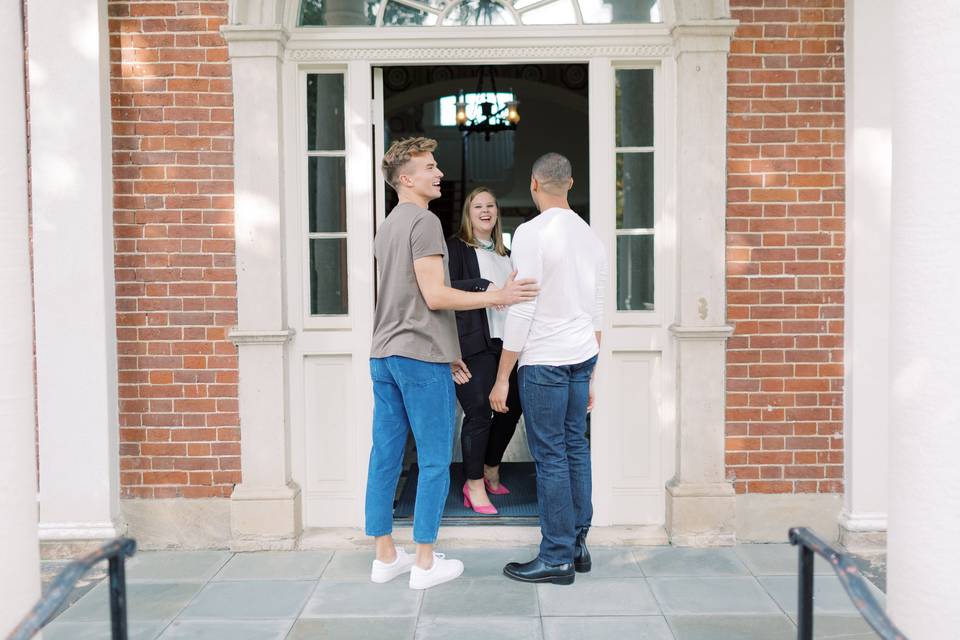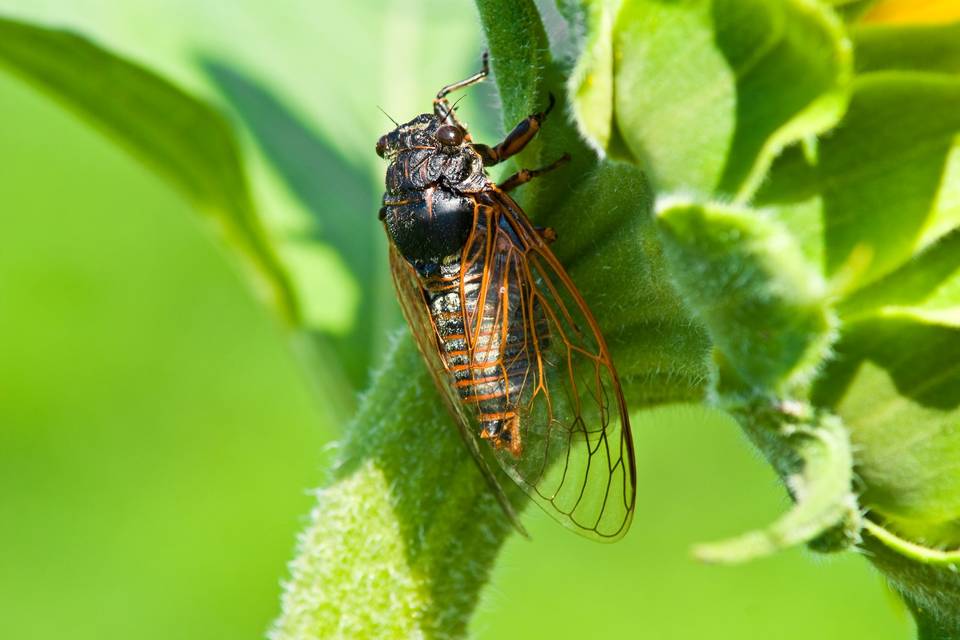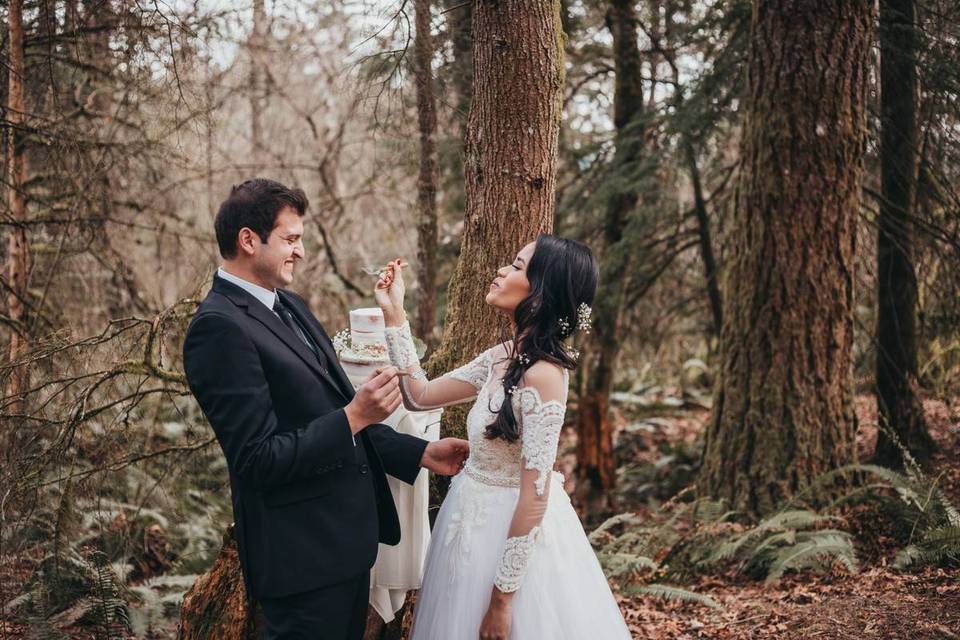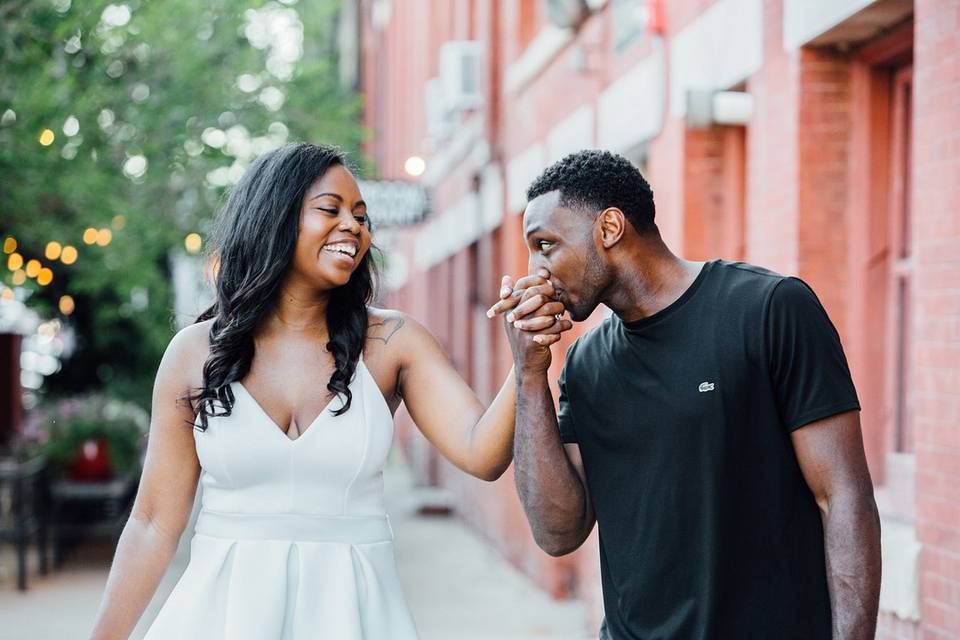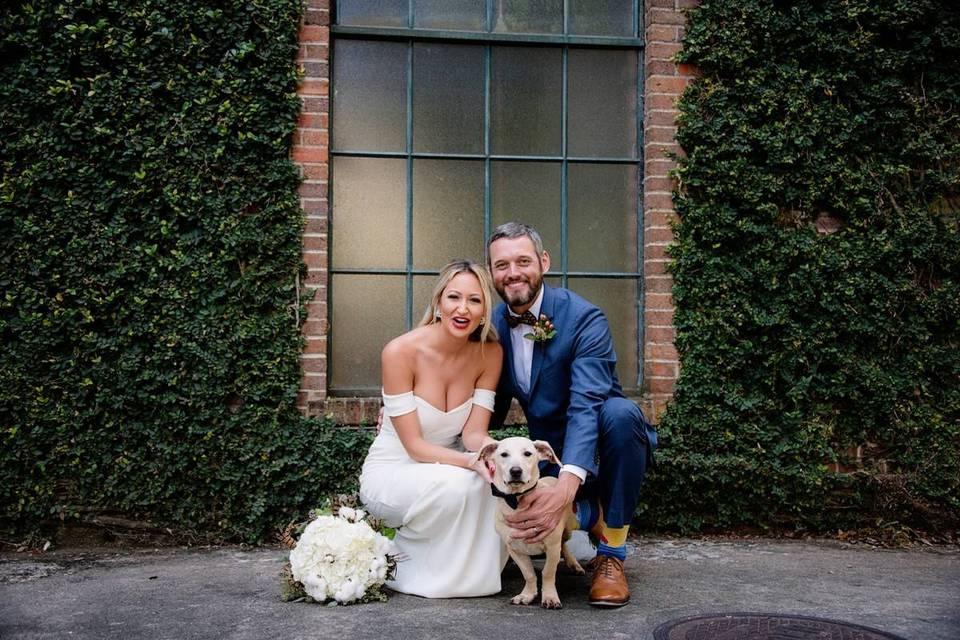Here's What the COVID Omicron Variant Might Mean for Your Wedding
Here's how to best prepare for your wedding in light of this new wave.
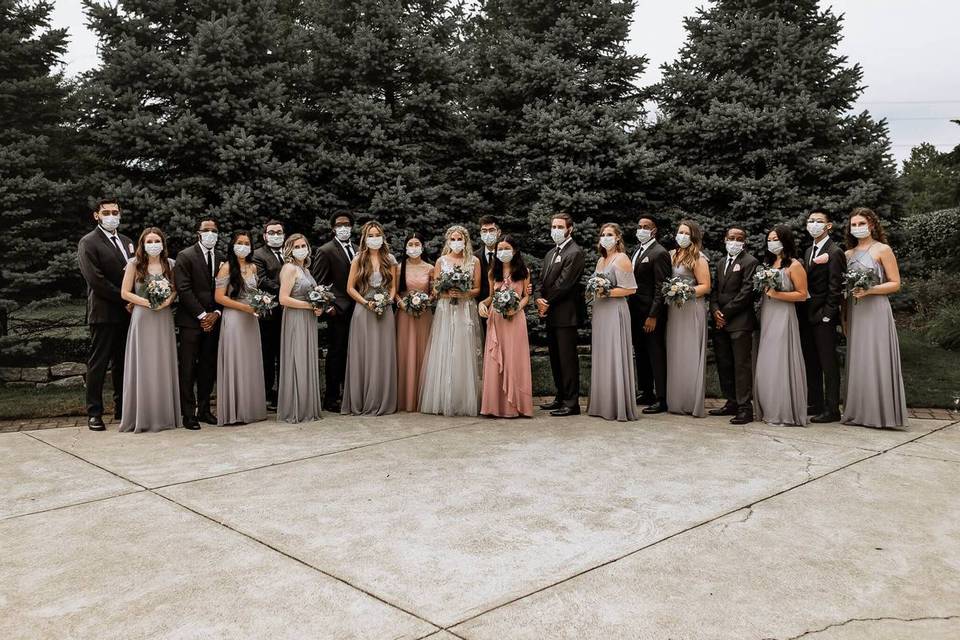
Just when we all started breathing a well-earned sigh of relief after nearly two years of living on the edge of our seats, there’s a new development. After the Delta variant made headlines this summer that proved to be even more contagious than the original strain of COVID, we’re now facing yet another contagious variant known as the Omicron variant. Although first discovered in South Africa in November, Rusha Modi, M.D., a gastroenterologist and assistant professor of clinical medicine at the University of Southern California, notes that it very likely did not originate from there. In fact, experts believe it’s been circulating for far longer than just November and more widely than we realize. “Once the genetic data identifying Omicron was shared with the world community, doctors began to identify it in multiple countries around the world including Europe and now the first detected case in the U.S. in California,” Dr. Modi says.
Even though much is still unknown about how much of a threat the Omicron variant will pose, Vivek Cherian, M.D., a Chicago-based internal medicine physician says there is cause for concern. “The combination of the fact that this variant exploded in South Africa combined with the concerning mutations in the spike protein suggest a level of increased transmissibility and possibly evasion from our currently deployed defenses is why this has raised several alarms,” he says.
For large-scale events like weddings, this may cause some concern. Restrictions have just finally eased up in most areas of the U.S. and people are finally starting to get comfortable with the idea of being in close proximity to others without masks. With the added worry about the Delta and now Omicron variants, it is definitely important to keep an eye on new COVID-19 infections in your local area as you are planning your big day. Here, experts share their best advice for how couples can best prepare for their big day in light of the recent Omicron variant.
Don’t panic.
Countless couples have already had to cancel and/or reschedule their wedding due to the pandemic. Whether this is your situation or you’ve been lucky enough to keep your original wedding date thus far, it’s no surprise if this new variant alarms you. The good news: We have so many resources and protocols available to help you achieve a safe wedding, notes Manda Weaver, photographer and owner of Manda Weaver Photography in Annapolis, Maryland. “In the midst of this chaos, please remember why you are getting married—listen to each other, grow as a couple through this and design a celebration that will fit the story you want to tell to future generations,” she says.
Prepare yourself and your guests for possible delays and rescheduling.
Especially if you’re planning a destination wedding that requires the majority, if not all, of your guests to travel, there is a chance that your event may have to be postponed or canceled due to heightened health concerns in the area. Christie Osborne, of Mountainside Media in Mammoth Lakes, California, suggests helping guests out by selecting room blocks with flexible cancellation policies and offering tips and tricks for canceling and rescheduling travel plans. “For example, by booking directly with major airlines rather than through third-party discount platforms, travelers may be able to reschedule flights for free if an event is rescheduled,” she says.
Encourage guests to monitor your wedding website and local health officials for updates.
Even if you don't have anything new to report, Osborne recommends creating a place where guests can check in on the status of your big event. “A simple update saying that the event is still on and where you're at in your planning process can go a long way in keeping guests informed and training them to look at your wedding website for updates,” she says. “Set guests up to stay abreast of new health and safety guidelines as they become available by providing links to local and national public health resources and using your own website as a hub for updates about your own event.”
Consider asking guests about vaccination status.
You and your partner will need to make an important decision before your wedding: Will you require your guests to be fully vaccinated in order to attend your event? If you’re requiring vaccinations and know some of your guests are hesitant to obtain a vaccine, Dr. Modi recommends that you reach out to them directly and have an honest, but compassionate, conversation about the topic. “It will be hard for some guests to have a good time if they know other guests have not been vaccinated, so I think a level of vaccine diplomacy on part of the couples to be is going to be essential to ensure everyone feels comfortable and safe,” he says. If you're not requiring vaccination among your guests, requesting everyone get a COVID test before attending your wedding is another option.
If any wedding guests that approach you about this requirement, Dr. Cherian recommends making it clear to them that you feel it’s your ethical responsibility not only to your guests at-large, but also their children and families to require vaccination to provide a layer of protection for everyone invited.
Talk to your vendors and local health department.
As the virus mutates at a rapid pace, public health departments will have no choice but to alter the rules to lower the levels of infection. This, explains Dr. Modi, can determine occupancy, social distancing, need for masks and more. “Make sure your wedding party is up-to-date with these compliance concerns and talk to your vendors regarding their safety protocols—especially for those involved with the food and beverage,” he says. “Don't get off guard because you weren't aware of the latest regulations.”
Inquire about COVID insurance.
Some venues and vendors are offering a new form of insurance that gives added flexibility to circumstances involving the pandemic. While your venues or vendors may not offer such a deal, it’s worth seeing if you can negotiate some sort of insurance clause in your contracts to protect your funds if there is an unexpected spike in cases that threatens the viability of your wedding, notes Dr. Modi. “This may involve return of a deposit, rescheduling of your wedding at no cost and/or credit towards future events,” he adds.
Prioritize hygiene.
We’re unfortunately not out of the woods yet, even if everyone at your wedding is vaccinated. Dr. Modi suggests incorporating physical signs at your venue that remind people to use precautions, especially if you're in an area with high spread. In addition to providing everyone with masks—even fun ones—have ample hand sanitizers spread throughout your venue. “Have your DJ or emcee make announcements regarding these matters at some point during your wedding and reception,” he says. “Evaluate the events and ritual of your wedding day and see if you can modify parts of it to incorporate more social distancing (easier said and done).”
Make it easy to livestream the event for people who may not be able to attend.
Whether or not a guest is vaccinated, it’s important to remember that everyone’s comfort level is different when it comes to public gatherings during a pandemic. Even if you’re not sure how many guests are officially coming or not coming to your wedding, it’s still a good idea to arrange for a virtual viewing so that elderly guests or those not comfortable attending can still be a part of your day without feeling like they are risking their safety in any way.

